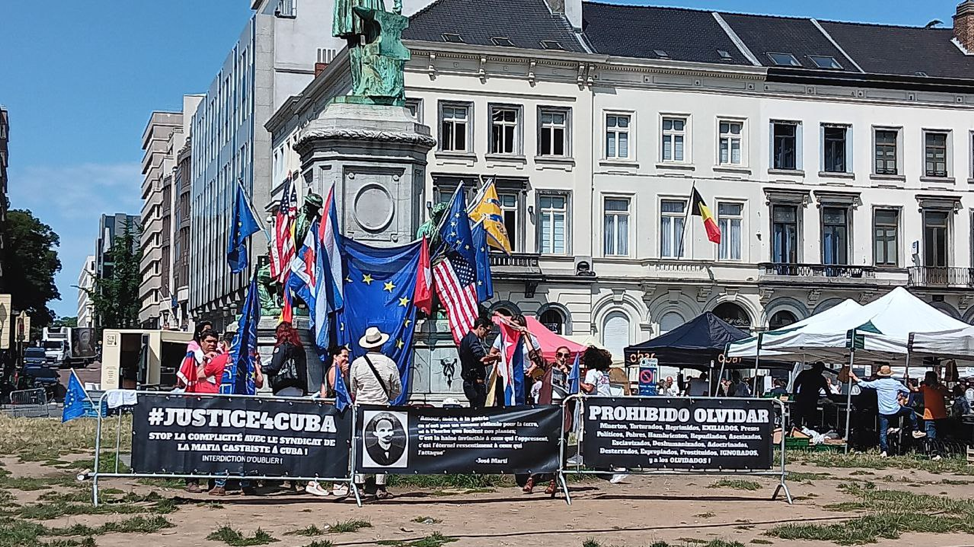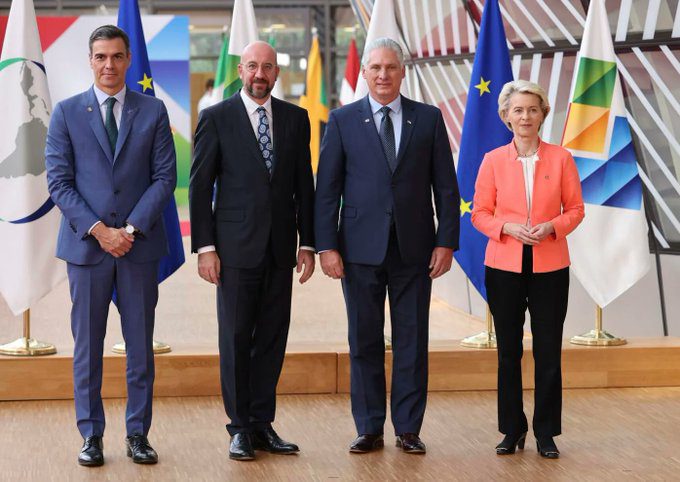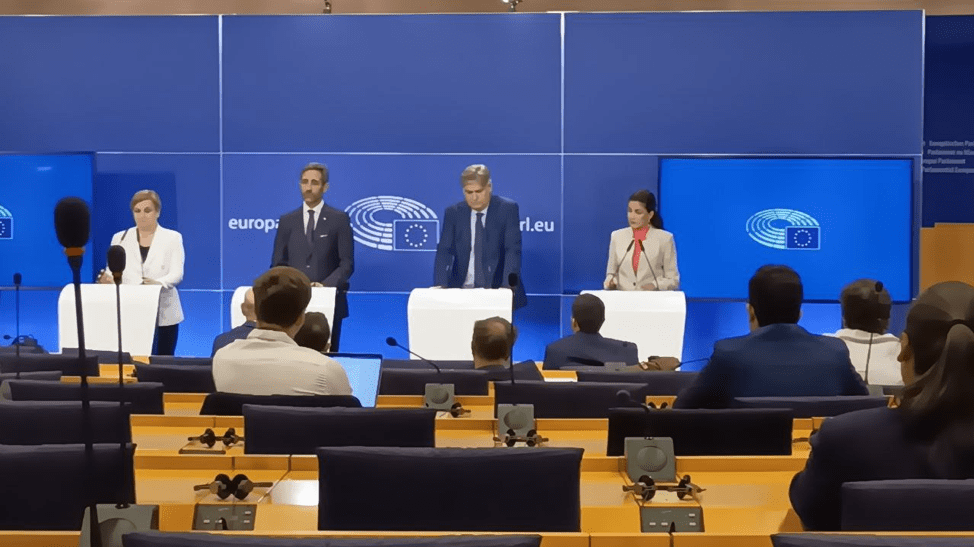
Anti-communist protestors outside of the EU Parliament at Place du Luxembourg, Brussels, 18 July 2023.
Photo: Thomas O’Reilly
A cross-partisan collection of MEPs, including the former Polish foreign affairs minister, Anna Fotyga, have denounced the presence of Cuban and Venezuelan leadership at the EU-Latin American CELAC summit in Brussels this week, saying that Europe was inadvertently opening the door to China and Russia in the region by tolerating authoritarianism.
Despite dropping sanctions against Cuba in 2008, the EU has struggled to maintain a coherent policy towards the island nation, as many on the European Left lobby for the total normalisation of relations with Havana.
The issue came to the fore again this week as Cuban President Miguel Díaz-Canel touched down in Brussels alongside the vice president of Venezuela, Delcy Rodriguez, to push for enhanced cooperation at the CELAC summit.

Both Latin American regimes have been repeatedly chastised by Western human rights groups; the European Parliament passed a resolution slamming Cuba for recent human abuses just last month, a move that jeopardises a 2016 trade agreement between the EU and the Cuban government.
Today 20-25 far right activists from Cuba, Venezuela, Brazil, Nicaragua, Bolivia & Iran came together in Brussels for a common cause: demand the EU cut all dialogue with their countries, demand the EU impose stronger sanctions, call for the defeat of the “global communist mvmt” pic.twitter.com/ceWcFR2cpL
— Zoe Alexandra (@ZoPepperC) July 17, 2023
The EU is running up against stiff resistance from Brazil’s Lula and other left-wing administrations throughout the CELAC summit. The EU seeks their cooperation for securing strategically vital raw materials necessary to manage any geopolitical decoupling from China as well as the green transition.
At a press conference held in the European Parliament Tuesday, July 18th, EU leaders were accused of turning a blind eye to Cuban and Venezuelan autocracy by Spanish EPP MEP Antonio López-Istúriz.
He was joined by Renew MEP José Ramón Bauzá, and the secretary-general of the conservative ECR group, MEP Anna Fotyga. Both Bauzá and Fotyga spoke alongside Cuban dissidents in calling for the EU to do more to combat authoritarianism in Latin America.
Bauzá implored the EU to use clauses under EU-Cuban Cooperation Agreements to take the Cubans to task more often—if not suspend—the agreement entirely, as Polish MEP Anna Fotyga likened the experiences of the Cuban people to Poland under Soviet occupation.
The MEPs spoke alongside Cuban political activist Rosa María Payá whose father, Oswaldo Payá, the founder of the Christian Liberation Movement, is acknowledged to have been murdered with the cooperation of the Cuban government in 2012.

All the speakers expressed their dismay that criticism of either Venezuelan or Cuban regimes was unlikely to feature in any EU post-CELAC statements, and that the EU was ignoring the fact that both countries were adamantly in favour of Russia’s war in Ukraine.
Just over five million Venezuelans have fled a collapsing economy and rising despotism at home in the past decade. The EU received 51,000 asylum applications from Venezuela in 2021 alone. Any political or economic alliances by the EU with Venezuela will be complicated by Caracas’s strong working relationship with Moscow which has deepened over the past year.
The EU’s foreign policy chief Josep Borell, himself a Spanish socialist politician, has been castigated for softening the EU’s stance on Cuba throughout his tenure and was forced to recall the EU’s ambassador to Havana in 2021 after they signed an open letter calling for an end to American sanctions.
Brussels’s current leniency towards Latin American authoritarianism may change with a conservative takeover of the Spanish Presidency of the European Council ahead of this weekend’s Spanish elections, which could dictate the EU’s future Latin American agenda.
